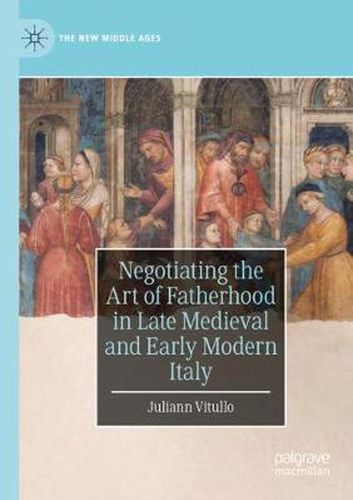Readings Newsletter
Become a Readings Member to make your shopping experience even easier.
Sign in or sign up for free!
You’re not far away from qualifying for FREE standard shipping within Australia
You’ve qualified for FREE standard shipping within Australia
The cart is loading…






This title is printed to order. This book may have been self-published. If so, we cannot guarantee the quality of the content. In the main most books will have gone through the editing process however some may not. We therefore suggest that you be aware of this before ordering this book. If in doubt check either the author or publisher’s details as we are unable to accept any returns unless they are faulty. Please contact us if you have any questions.
Negotiating the Art of Fatherhood in Late Medieval and Early Modern Italy examines contested notions of fatherhood in written and visual texts during the development of the mercantile economy in fourteenth- and fifteenth-century Italy. It analyzes debates about the household and community management of wealth, emotion, and trade in luxury goods, including enslaved women, as moral questions. Juliann Vitullo considers how this mercantile economy affected paternity and the portraits of ideal fatherhood, which in some cases reconceived the role of fathers and in others reconfirmed traditional notions of paternal authority.
$9.00 standard shipping within Australia
FREE standard shipping within Australia for orders over $100.00
Express & International shipping calculated at checkout
This title is printed to order. This book may have been self-published. If so, we cannot guarantee the quality of the content. In the main most books will have gone through the editing process however some may not. We therefore suggest that you be aware of this before ordering this book. If in doubt check either the author or publisher’s details as we are unable to accept any returns unless they are faulty. Please contact us if you have any questions.
Negotiating the Art of Fatherhood in Late Medieval and Early Modern Italy examines contested notions of fatherhood in written and visual texts during the development of the mercantile economy in fourteenth- and fifteenth-century Italy. It analyzes debates about the household and community management of wealth, emotion, and trade in luxury goods, including enslaved women, as moral questions. Juliann Vitullo considers how this mercantile economy affected paternity and the portraits of ideal fatherhood, which in some cases reconceived the role of fathers and in others reconfirmed traditional notions of paternal authority.